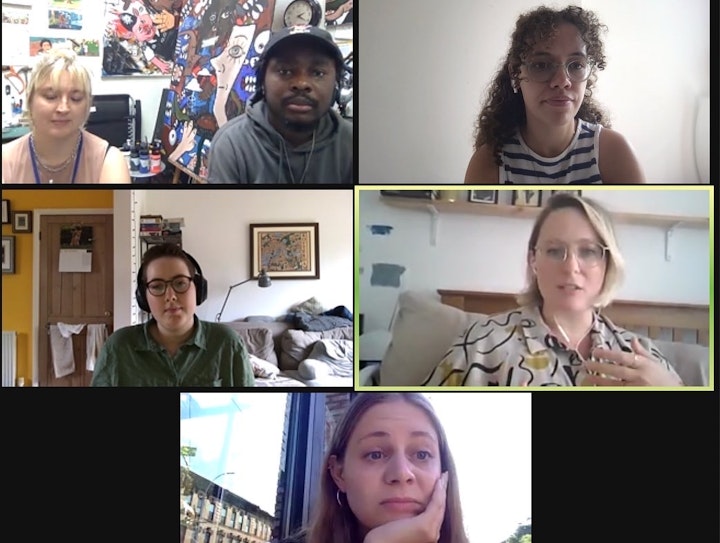The Art of Access Adjustments, Studio Voltaire, 2022
Talks archive
The Art of Access Adjustments, Studio Voltaire, 2022
An evening of screenings, readings and talks exploring the artistic possibilities of access adjustments that took place in September 2022.
The breadth of possible access adjustments around artworks are vast – from closed captioning, to audio description, wheelchair access and spaces to sit and rest. Each adjustment is designed with the intention of aiding people to view and experience a work regardless of their access needs. The social model of disability states that a person is not disabled by their impairment, but instead by disabling physical and attitudinal barriers in society. Access adjustments can be seen as one tool in dismantling some of these barriers. Yet, for too long access adjustments have been treated as an add-on or afterthought by cultural institutions, instead of an integral and necessary part of running a public space.
Leading the way in reshaping our attitude around accessibility are disabled artists who are building access adjustments into their artworks as a way of extending their creativity to a greater number of people. Not seeing access as extra; instead viewing access adjustments as holding limitless potential as an art form in and of themselves. This might include the translation of a physical exhibition into a bespoke film, which goes further than documentation by attempting to carry the experience of moving around the space for anyone who can’t physically be in the building, or positioning image descriptions and closed captioning as poetry.
The event took place online, via zoom, and included screenings of Leah Clements’ The Siren of the Deep (2021), Djofray Makumbu’s Cover (2022) and Abi Palmer’s What Now? (2020), and Bella Milroy reading from her zine Access as Meditation: A Love Letter to Image Descriptions and Closed Captioning (2021). Screenings and readings were followed by a talk between the artists chaired by Jamila Prowse.
All films and the Q&A (with the exception of Cover by Djofray Makumbu) are available to watch below. All the films screened had closed captions. Closed and live captions were available for the duration of the event. All speakers self-described at the outset of the Q&A.
